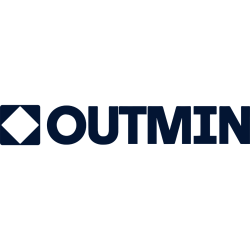For years, spreadsheets have been the go-to tool for managing hospitality cash flow.
They’re accessible, familiar, and (relatively) simple. But as businesses evolve, so do their needs.
Let’s face it: spreadsheets are limited. They’re static, prone to errors, and often don’t provide the real-time insights necessary for critical financial decisions.
This raises the question: What actually makes a good cash report? And is it time to move beyond spreadsheets?
Spreadsheets: The Old Reliable… Until They Aren’t
Excel, we love you, but it’s time to retire. Here’s why:
- 1
Spreadsheets are Static (But Your Business Isn’t)
Spreadsheets show your cash flow at one point in time. But in your business, cash is always moving – money comes in, expenses go out. By the time you update a spreadsheet, it’s already old news.
This is particularly problematic in Hospitality, where cash is always flowing. Relying on static data to make decisions can lead to missed opportunities or, worse, financial missteps.
- 2
Human Error… A Silent Saboteur
We’re all human, and humans make mistakes. A lot of them. A recent study shows that 94% of business spreadsheets have critical errors. An incorrect formula, a wrong keystroke, or an accidental deletion can torpedo an entire report.
Unreliable cash reports can snowball into bad business decisions and major financial problems down the line. Simple as that. Business owners need tools that minimise these risks.
- 3
A Breach Waiting to Happen
Spreadsheets are easy to share and modify, but that also makes them vulnerable. Sending sensitive financial data via email or storing it without encryption creates big security risks.
Simply put, spreadsheets are easy to hack or mess up. Bad actors who get their hands on them can alter the numbers or steal your data because spreadsheets are notoriously hard to safeguard.
- 4
Limited Scope, Limited Insights
Spreadsheet reports often focus on a single data source or require a human to manually combine data from multiple sources. This not only takes time but also limits the depth of insights you can gain.
No wonder, according to a large study by BlackLine, Inc., a staggering 98% of finance and accounting leaders say they are not fully confident in their cash flow visibility.
So, What Makes a Good Cash Report?
If spreadsheets can’t meet the evolving needs of businesses, what should you look for in a modern cash reporting solution?
Up-to-date Data: Business moves quickly, and so does cash flow. A good cash report should offer a current picture of your finances at all times so that you can make informed decisions on the fly.
Automation: Reducing manual input is key to minimising human error. Automated systems that pull data from various sources (like your bank accounts or payment systems) ensure your cash report is accurate and up to date without you needing to manually update it.
Clear Visualisations: Raw numbers are great, but they can get pretty overwhelming. A well-designed cash report includes visual tools like charts or graphs that help you spot trends, compare data, and understand your financial position at a glance.
Comprehensive View: Your cash report should cover all aspects of your financial activity, from sales to expenses and everything in between. The ability to drill down into specific categories and transactions is key for understanding exactly where your money is going.
Security and Privacy: Look for a system that offers strong encryption, access controls, and the ability to track any changes made to your financial data. With sensitive cash flow information, security is non-negotiable.
Time to Move On?
Spreadsheets have served us well for a long time, but for today’s businesses, they are no longer enough. While there are now powerful tools available that fix these limitations – like Outmin’s Cash Insights, which offers automated, daily cash flow data in one simple dashboard – the choice is ultimately yours.
If you’re ready to take control of your cash flow, it might be time to trash those outdated spreadsheets and switch to a modern solution that works for you, not against you.
Remember, in the end, your cash report should be a tool that empowers you and helps you make better-informed decisions, not one that limits your potential.


